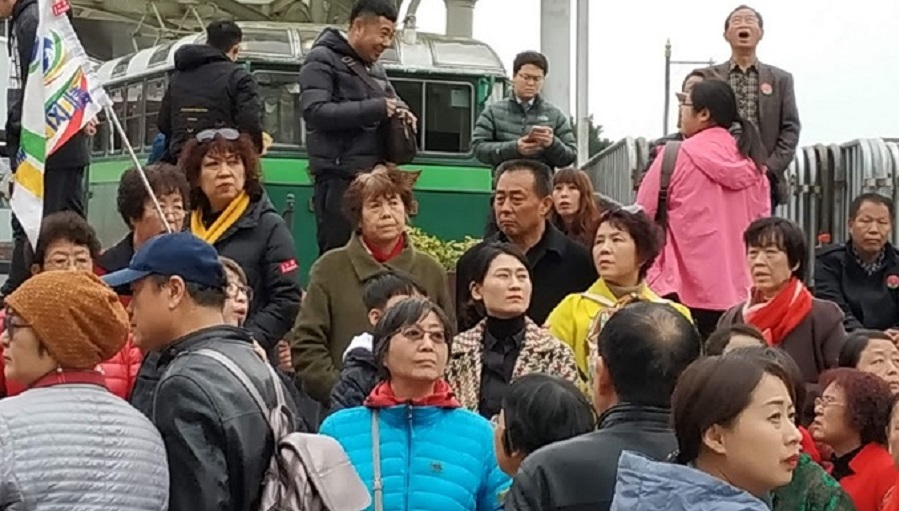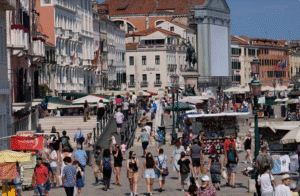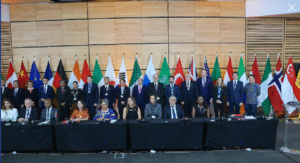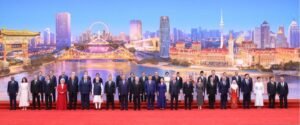Leaders discuss role of tourism in Asia and Pacific’s development future

TravelBizNews —
Participants at a high-level Asian Development Bank (ADB) seminar have urged the governments of Asia-Pacific countries to work for a socially and environmentally sustainable development of tourism.
” Tourism has significant potential to contribute to Asia and the Pacific’s long-term growth prospects through infrastructure development and job creation. But governments should work to ensure the industry grows in a socially and environmentally sustainable way.”
The Governors’ Seminar, titled “The Role of Tourism for Sustainable Development,” at the 52nd Annual Meeting of ADB’s Board of Governors in Nadi, Fiji, featured as panelists Japan Deputy Prime Minister and Finance Minister Taro Aso; Indonesia Finance Minister Ms. Sri Mulyani Indrawati; Fiji Attorney-General and Minister for Economy, Civil Service, and Communications Aiyaz Sayed-Khaiyum; Italy’s Director-General for International Financial Relations, Ministry of Economy and Finance Ms. Gelsomina Vigliotti; and ADB President Takehiko Nakao.
In 2018, 343 million international tourist arrivals and $390 billion in international tourist spending went to Asia and the Pacific.
International visitors to Asia have risen by 65% between 2010 and 2018 with key Asian destinations being the People’s Republic of China; Thailand; Japan; Hong Kong, China; and Malaysia. Asian tourists are also an increasing driver of global tourism with higher incomes and a rapidly growing middle class seeking experiences abroad.
Globally, international tourist arrivals are expected to reach 2.44 billion by 2030, a 75% increase over 2018, with Asia and the Pacific projected to account for a third of this number, according to ADB release.
Tourism plays a large role in the Asian economy. Spending on hotels and airline tickets was $92 billion in 2018 with an estimated 78 million new jobs created. The indirect impact such as through tourism-related investment on new hotels or airplane purchases was larger at $2.94 trillion, creating an estimated 180 million jobs. In Fiji, tourism contributed 14% of the local economy with the indirect impacts accounting for 40% of gross domestic product.
Seminar discussions highlighted several points. Tourism should be encouraged as a key contributor to investment, employment, and tax revenues through investment in both infrastructure and people. For example, world-class airports and airport staff in Bangkok and Kuala Lumpur contribute to the vitality of tourism in Thailand and Malaysia. With land being a key component of sustainable tourism, clear and effective sustainable land use regulations are needed.
Tourism creates millions of jobs, notably for women, young people, and those in remote rural areas. However, workers in tourism need the right skills and good working conditions. The Indian state of Kerala, for example, has a program that has trained some 650 residents of poor communities for jobs in local hotels.
Tourism can damage the environment which, over time, reduces visitors and revenues. Governments and the tourism industry can work together to avoid this. In Fiji, the government imposes a 10% tax on tourism-related businesses which funds climate change mitigation projects.
Similarly, cultural heritage needs protection, which could include controlling numbers of visitors to monuments or creating fiscal incentives for businesses to restore historical buildings. To protect the Angkor Wat temple, the Cambodian government created a dedicated authority to better manage the site and maximize the benefit to the local community.
Last, tourism should foster mutual understanding, peace, and safety among people of different backgrounds. Smart travel practices including data sharing is one way to do this.
Currently, 16 Asian countries participate in an electronic visa scheme that has increased efficiency at border controls and boosted security.
Panelists raised the importance of good infrastructure to support tourists and, through improved water and wastewater systems, for example, to protect the environment.
ADB has supported the development of sustainable tourism in the region through financing for infrastructure, regional connectivity, and environmental protection.
In the Association of Southeast Asian Nations region, ADB has provided assistance for transport, waste management, and skills training and planning, which have improved access and environments in secondary tourism destinations.
ADB is committed to achieving a prosperous, inclusive, resilient, and sustainable Asia and the Pacific, while sustaining its efforts to eradicate extreme poverty. In 2018, it made commitments of new loans and grants amounting to $21.6 billion. Established in 1966, it is owned by 68 members-49 from the region.
May 5 , 2019
Photo – Tourists in Hong Kong / TravelBizNews














